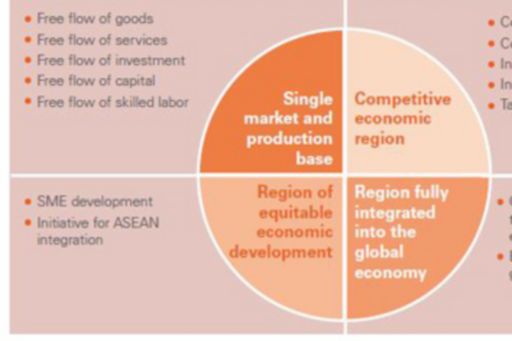The ASEAN Economic Community 2015 - On the road to real business impact
The ASEAN Economic Community 2015
The Association of Southeast Asian Nations (ASEAN), including Brunei Darussalam, Cambodia, Indonesia, Lao PDR, Malaysia, Myanmar, Philippines, Singapore, Thailand and Vietnam, is rapidly approaching a new milestone: the implementation of the ASEAN Economic Community (AEC) at the end of 2015.

The AEC fundamental freedoms are becoming a point of increased focus for international business. The AEC sets the foundations of a single market and production base allowing for the free movement of goods, services, investment, capital and skilled labor. In addition, the ten member countries of the ASEAN are aiming at jointly realizing the development of a competition policy, the protection of intellectual property, the facilitation of e-commerce, and the introduction of a more comprehensive investment protection and dispute resolution system.
The AEC is expected to have far-reaching economic consequences, by significantly promoting intra-ASEAN trade and investment and strengthening the global importance of the ASEAN as an economic block. Apart from the reduction of tariffs, ASEAN tax coordination is limited to the elimination of certain withholding taxes and the completion of the network of double tax treaties among all ASEAN countries. This leaves increased tax competition between ASEAN countries in order to attract foreign direct investment promoting further regional and global integration of businesses.
In this rapidly changing environment, global businesses need to closely monitor the ASEAN developments and consider their trade and investment opportunities further optimizing their global supply chains.
Five fundamental freedoms leading to real business impact
The principles of AEC provide for fundamental freedoms relevant for international business, to ensure a single AEC market and opening of an AEC single production base.

© 2024 Copyright owned by one or more of the KPMG International entities. KPMG International entities provide no services to clients. All rights reserved.
KPMG refers to the global organization or to one or more of the member firms of KPMG International Limited (“KPMG International”), each of which is a separate legal entity. KPMG International Limited is a private English company limited by guarantee and does not provide services to clients. For more detail about our structure please visit https://kpmg.com/governance.
Member firms of the KPMG network of independent firms are affiliated with KPMG International. KPMG International provides no client services. No member firm has any authority to obligate or bind KPMG International or any other member firm vis-à-vis third parties, nor does KPMG International have any such authority to obligate or bind any member firm.